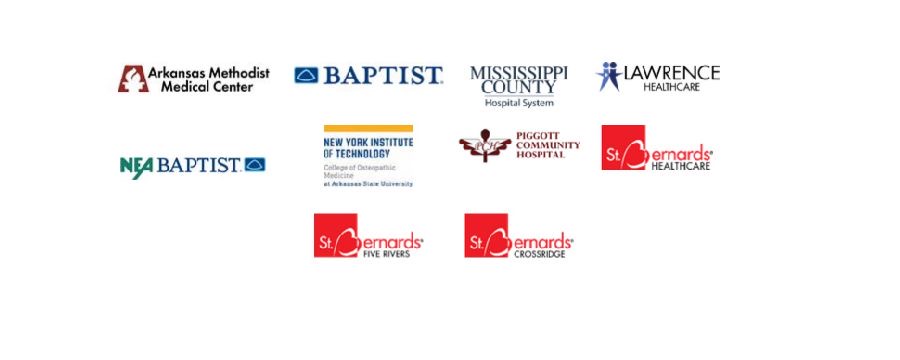Among a rapidly increasing number of COVID-19 cases in Northeast Arkansas, 11 medical institutions issued a joint statement Monday urging residents of the region to remain diligent in their efforts to slow the spread of the virus.
Arkansas Methodist Medical Center in Paragould, Baptist Memorial Hospital – Crittenden of West Memphis, Great River Medical Center & South Mississippi County Medical Center in Blytheville/Osceola, Lawrence Memorial Hospital in Walnut Ridge, NEA Baptist Health System of Jonesboro, NYIT College of Osteopathic Medicine at Arkansas State University Piggott Community Hospital, St. Bernards Medical Center in Jonesboro, St. Bernards Five Rivers of Pocahontas and St. Bernards CrossRidge of Wynne collectively express concern regarding the increase of cases in our region and implore residents to follow CDC recommendations to help minimize the virus’s impact.
Last week, the White House Coronavirus Task Force identified 10 counties in our region as “COVID red zones.†As of Friday, Oct. 23, the eight Northeast Arkansas counties represented by the institutions issuing this joint statement – Clay, Craighead, Crittenden, Greene, Lawrence, Mississippi, Poinsett and Randolph – accounted for almost 20% of the active cases in Arkansas despite having just over 10% of the state’s population.
Consequently, all Northeast Arkansas hospitals are experiencing a significant increase in COVID patients. Following an influx over the weekend, Northeast Arkansas now accounts for the highest number of admitted COVID patients in the state.
We strongly urge everyone in Northeast Arkansas to remain vigilant in their efforts to limit the spread of the virus by wearing masks, washing hands and staying socially distant. Additionally, it’s imperative that you avoid large gatherings. A major surge of new COVID-19 cases could have a devastating effect on our communities. COVID is now the third-leading cause of death in our country, and it has sickened thousands of others, some of whom continue to suffer from long-lasting complications.
Our medical leaders have said for several months that the fall would likely bring a resurgence of cases, and that’s certainly what we’re now experiencing. As this time of year brings cooler temperatures and more indoor activities, the risk of transmitting the virus increases.
The best way to slow the spread of COVID-19 is to wear a face mask, wash your hands and social distance, which includes not gathering in large groups. We also encourage everyone over six months old to get a flu vaccine this year to protect your health and the health of those around you. Together, we can slow the spread of COVID-19 and the flu and protect our communities.
